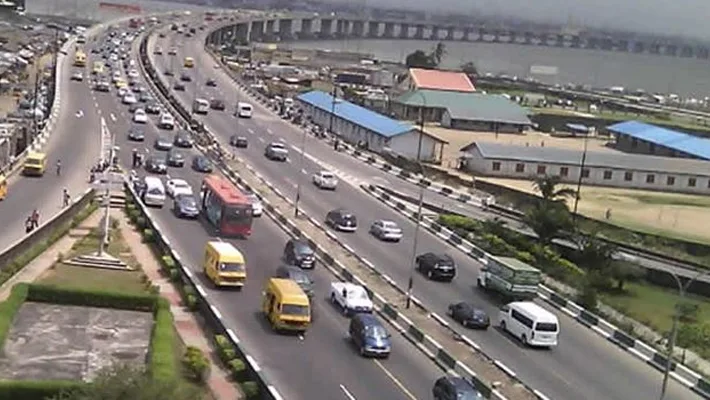The Federal Government has officially reopened the Independence Bridge in Lagos following emergency repairs, just two days after the bridge’s closure caused massive gridlock across the city.
The closure, which was originally scheduled for maintenance and rehabilitation, sparked public outcry due to the resulting traffic jams. In response, Minister of Works, David Umahi, ordered the immediate reopening of the bridge on Thursday.
Lagos State Governor, Babajide Sanwo-Olu, had previously apologized for the inconvenience caused by the closure.
During the reopening ceremony on Friday, Umahi explained that the closure was prompted by a structural failure involving the approach slab of the bridge, which caved in due to a faulty design. He revealed that the slab was originally constructed as a cantilever, a design flaw that made it structurally inadequate. “Every approach slab must have at least one end fixed,” he said.
Umahi added that the failure occurred when sand fill beneath the slab leaked, compromising its integrity and posing a significant risk to commuters.
Acknowledging the disruption, the minister admitted that proper procedures were not followed in announcing the closure and emphasized plans to introduce a standardized process for road and bridge closures nationwide. “Controllers must submit drone surveys, outline technical problems, propose alternative routes, and publish this information to the public,” he stated.
The minister also announced that the Independence Bridge would undergo a redesign to ensure long-term stability. “We will redesign it as a one-span bridge, which will eliminate lateral head pressure on the abutment and address underlying issues such as piling depth,” he explained.
Umahi further noted that all major Lagos bridges, including the Third Mainland, Carter, and Iddo bridges, are supported by skin-friction piling, which relies on surrounding sand for stability. He cautioned that sand excavation or scouring in these areas could threaten the structural integrity of the piles.
Permanent reinforcement work is set to begin in three weeks, following verification of underground pipe integrity. Umahi outlined a phased construction approach, each phase lasting approximately 21 days, to minimize disruptions.
Future projects, he said, will be scheduled for the public’s convenience, with some construction taking place exclusively on weekends or at night. The Lagos State Traffic Management Authority (LASTMA) will also monitor traffic during repairs.
“This is not just about engineering; it’s about communication, safety, and accountability,” Umahi concluded. “We owe it to Nigerians to do better.”


